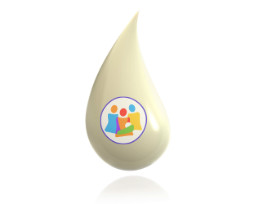X-Rays During Lactation
Plain X-Rays and Ultrasound
Plain xrays such as chest or bone xrays are completely safe during lactation. Mammograms and ultrasounds also have no effect on lactation.
CTs and MRIs
Lactating parents occasionally need to have x-ray procedures such as CT scans, MRIs, angiograms, or urograms. When undergoing these procedures, the patient is typically given medication called ‘contrast’ through an IV or orally. The contrast is used to help the radiologist outline the organs and find abnormalities. The contrast for a CT is often ‘iodinated’ and MRI contrast is often ‘gadolinium-containing’.
The American College of Radiology has determined that less than 1% of these iodinated or gadolinium-containing agents are excreted into breastmilk, and less than 1% of any contrast in breastmilk would be absorbed thru the infant’s GI tract.
Therefore, breastfeeding or providing one’s expressed breastmilk does not need to be interrupted when a parent undergoes an MRI, CT, angiogram or urogram, whether contrast is used or not.
Nuclear Medicine- procedures that use radioactive materials
IF possible, it is recommended to delay nuclear medicine procedures until the patient is no longer breastfeeding. When a lactating parent receives radioactive compounds, the radioactive material will be excreted into their milk and will irradiate the breasts. The radioactive material will also leak out thru their milk.
If a nuclear procedure cannot be delayed until weaning, recommendations for pumping and dumping or storage of human milk are specific to each nuclear substance. Please search for the nuclear compound in the US National Institute of Health’s Drugs & Lactation Database to find the latest recommendations on management.
Milk expressed while the lactating parent was exposed to radioactive materials can be stored in the freezer. Over time, the breastmilk will lose its radioactivity. The milk should be kept in a freezer that is infrequently opened and is away from frequent contact with people, to avoid irradiating others. Parents can ask the nuclear medicine specialists at their local hospital to test their milk for any remaining radioactivity before feeding the milk to their infant(s).
Resources
- American College of Radiology https://www.acr.org/-/media/ACR/files/clinical-resources/contrast_media.pdf (accessed 5/1/22)
- US National Institute of Health’s Drugs & Lactation Database- https://www.ncbi.nlm.nih.gov/books/NBK501922/ (accessed 5/1/22)


